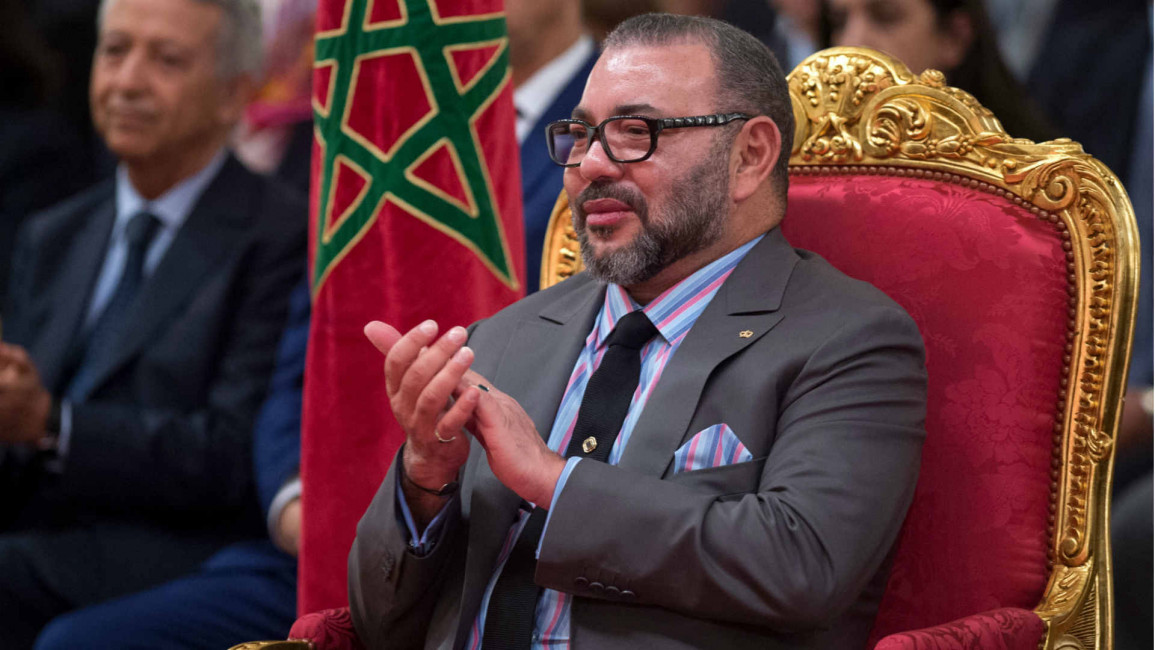After crisis, Spanish PM to meet Morocco's king
Spanish Prime Minister Pedro Sanchez will meet Morocco's King Mohammed VI in Rabat on Thursday after the two countries ended a thorny year-long dispute over Western Sahara.
Sanchez will join Morocco's king when he breaks Thursday's Ramadan fast with an evening meal, Spanish Foreign Minister Jose Manuel Albares told a Madrid news conference.
"This is a very strong sign of friendship," he said, adding Sanchez's visit would continue on Friday.
During Islam's holy month of Ramadan, believers abstain from food and drink during daylight hours, breaking their fast with the iftar evening meal.
Morocco's royal palace confirmed Sanchez's visit in a statement, saying he would be a "distinguished guest".
The meeting comes as the two nations moved to normalise ties after drawing a line under a bitter spat in mid-March when Madrid changed its position on Western Sahara, a disputed territory claimed by Rabat.
Spain on March 18 said it had agreed to publicly recognise Rabat's autonomy plan for the territory, ending a decades-long stance of neutrality.
In agreeing to a long-standing Moroccan demand, Spain sought to end a dispute which erupted in April 2021 when it allowed Western Sahara's independence leader Brahim Ghali to be treated for Covid-19 at a Spanish hospital.
A month later Spain allowed more than 10,000 migrants to surge across the Moroccan border into Spain's Ceuta enclave as local border forces looked the other way, in what was widely seen as a punitive gesture by Rabat.
Ghali's Polisario Front has fought since the 1970s for the independence of Western Sahara, a desert region bigger than Britain that was a Spanish colony until 1975.
Despite multiple overtures by Madrid, Morocco remained unmoved - until last month's U-turn.
Ghali criticised Madrid's "radical shift" and accused Spain of once again "abandoning" the people of Western Sahara, in a weekend interview in Spain's El Mundo daily.
Western Sahara, with rich Atlantic fishing waters and access to key markets in West Africa, is 80 percent controlled by Morocco but considered a "non-autonomous territory" by the UN.
Spain withdrew from the area in 1975 but the Polisario Front waged a long armed struggle for independence from Morocco before reaching a ceasefire in 1991 on the promise of a UN-supervised self-determination referendum with all options on the table.
But the referendum has never happened.
Morocco has rejected any vote including the option of independence, and has only offered limited autonomy under a 2007 plan which would see the phosphate-rich desert kept under Moroccan sovereignty.
In November 2020, the Polisario declared the ceasefire null and void, and has since stepped up attacks on Moroccan forces.
Madrid, whose enclaves of Ceuta and Melilla share land borders with Morocco, now officially views the autonomy plan as "the most serious, realistic and credible basis" for a resolution.
Despite widespread criticism at home, Sanchez has defended the decision as crucial for securing a "more solid relationship" with Morocco, a key ally notably on migrant issues.
But Jorge Dezcallar, a former Spanish ambassador to Morocco, said Madrid's shift "should" allow for better relations with Rabat but admitted he was "not too confident" it would be for the long term.
"It will depend on domestic politics in Morocco," he said.
Rabat has a territorial claim over Ceuta and Melilla which will eventually strain ties once again, he added.


![President Pezeshkian has denounced Israel's attacks on Lebanon [Getty]](/sites/default/files/styles/image_684x385/public/2173482924.jpeg?h=a5f2f23a&itok=q3evVtko)



 Follow the Middle East's top stories in English at The New Arab on Google News
Follow the Middle East's top stories in English at The New Arab on Google News


